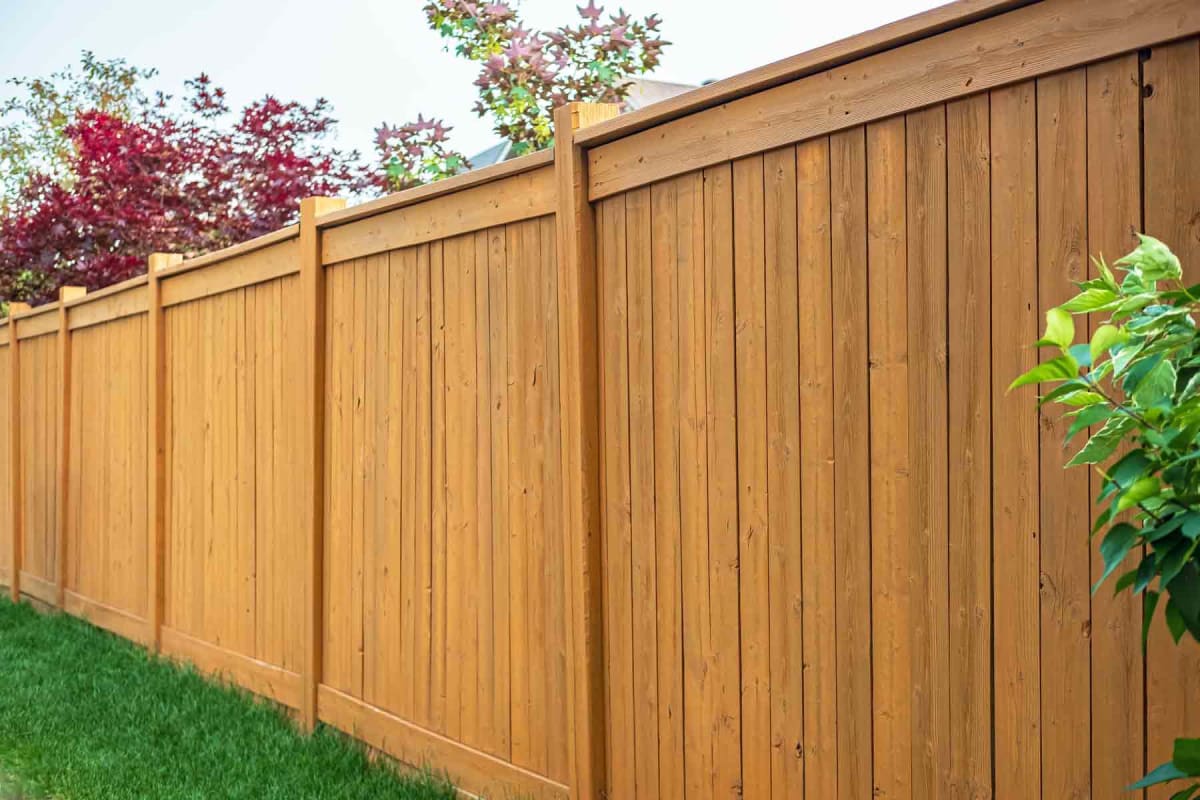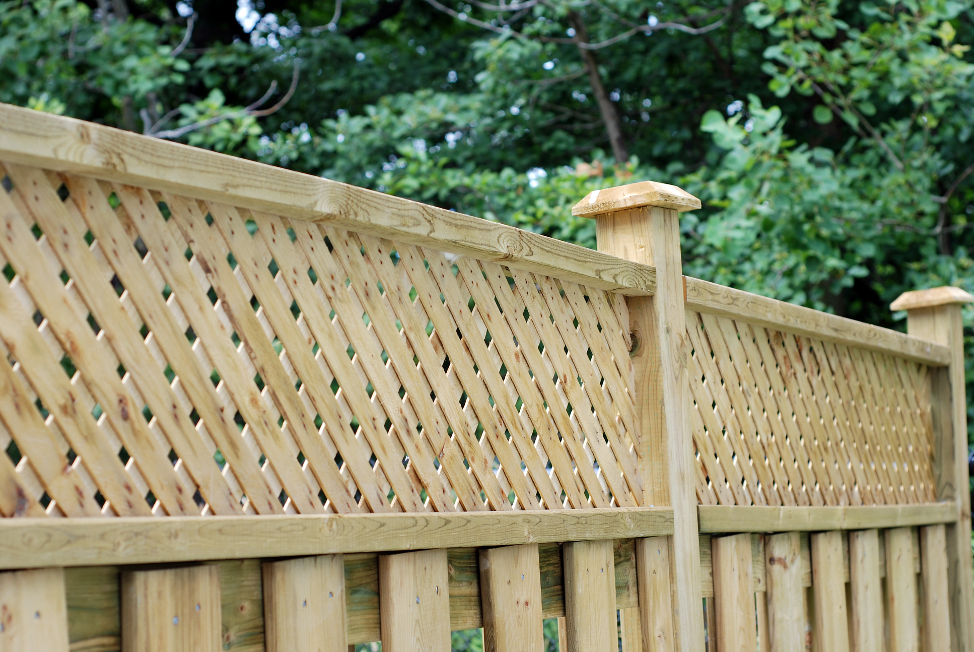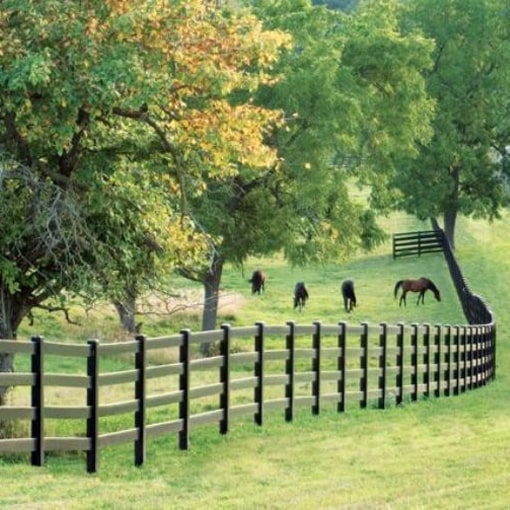All Categories
Featured
Selecting the perfect fence for your home needs careful consideration of different variables, including your goals, spending plan, and preferences. With so many choices offered, recognizing your requirements and the attributes of different fence materials is important. Here's exactly how you can choose the best fencing for your home.
![]()
Personal privacy: Strong panels made from wood, plastic, or composite deal complete personal privacy. Protection: Wrought iron, chain-link, or steel fences can shield your residential or commercial property from intruders. Visual Allure: Picket fencings, aluminum fencings, or decorative iron styles enhance visual allure. Border Marking: Lightweight products like chain-link or decorative fencing clearly define residential property lines. Noise Reduction: Dense timber or composite fencings help reduce sound pollution. Specifying your objectives ahead of time tightens down the material and design choices.
Wood: Gives an all-natural look and is versatile in design yet needs routine upkeep to prevent rot and weathering. Plastic: Durable and low-maintenance, plastic is resistant to weather but can have a higher ahead of time price. Aluminum: Lightweight and immune to corrosion, aluminum is ideal for decorative objectives however does not have privacy. Chain-Link: A cost-effective selection for safety and control however provides minimal personal privacy. Compound: A blend of wood and plastic, composite deals the look of wood with much less maintenance. Wrought Iron: Classy and sturdy, functioned iron offers protection however needs regular maintenance to avoid corrosion. Evaluate your environment, spending plan, and maintenance abilities when choosing a material.
Economical Options: Chain-link and pressure-treated timber fencings are budget-friendly. Mid-Range Choices: Vinyl and composite fencings offer sturdiness and style at a moderate expense. Premium Options: Wrought iron and ornamental light weight aluminum fences provide deluxe however are a lot more pricey. Balance initial costs with long-lasting maintenance expenditures to establish one of the most economical option.
Low Maintenance: Vinyl and aluminum fences require just occasional cleaning. Modest Maintenance: Compound fences require less upkeep than timber yet still require some treatment. High Upkeep: Wood fences demand regular staining or painting to preserve their beauty and architectural stability. Choose for a material that lines up with your readiness and capacity to keep it.
![]()
Modern Houses: Sleek vinyl or metal layouts pair well with modern buildings. Standard Characteristics: Wood picket or wrought iron fences boost traditional looks. Rural Features: Split-rail or all-natural wood fencings mix perfectly with rustic surroundings. Choosing a fencing that harmonizes with your residential property enhances aesthetic charm and worth.
![]()
Final thought. Choosing the best fencing includes evaluating your demands, exploring product options, and taking into consideration lasting prices. A well-planned fencing enhances your residential property's capability and look while offering safety and security and value. Put in the time to examine your demands and get in touch with experts for a solution tailored to your building's one-of-a-kind characteristics.

- Recognize Your Fence's Objective. The key function of your fencing must assist your decision. Usual objectives consist of:
Personal privacy: Strong panels made from wood, plastic, or composite deal complete personal privacy. Protection: Wrought iron, chain-link, or steel fences can shield your residential or commercial property from intruders. Visual Allure: Picket fencings, aluminum fencings, or decorative iron styles enhance visual allure. Border Marking: Lightweight products like chain-link or decorative fencing clearly define residential property lines. Noise Reduction: Dense timber or composite fencings help reduce sound pollution. Specifying your objectives ahead of time tightens down the material and design choices.
- Choose the Right Material. Each secure fencing material has distinctive attributes that suit details demands:
Wood: Gives an all-natural look and is versatile in design yet needs routine upkeep to prevent rot and weathering. Plastic: Durable and low-maintenance, plastic is resistant to weather but can have a higher ahead of time price. Aluminum: Lightweight and immune to corrosion, aluminum is ideal for decorative objectives however does not have privacy. Chain-Link: A cost-effective selection for safety and control however provides minimal personal privacy. Compound: A blend of wood and plastic, composite deals the look of wood with much less maintenance. Wrought Iron: Classy and sturdy, functioned iron offers protection however needs regular maintenance to avoid corrosion. Evaluate your environment, spending plan, and maintenance abilities when choosing a material.
- Consider Your Budget. Your budget will certainly influence the product and layout you can manage.
Economical Options: Chain-link and pressure-treated timber fencings are budget-friendly. Mid-Range Choices: Vinyl and composite fencings offer sturdiness and style at a moderate expense. Premium Options: Wrought iron and ornamental light weight aluminum fences provide deluxe however are a lot more pricey. Balance initial costs with long-lasting maintenance expenditures to establish one of the most economical option.
- Variable in Maintenance Needs. The upkeep of a fence can affect its long life and look:
Low Maintenance: Vinyl and aluminum fences require just occasional cleaning. Modest Maintenance: Compound fences require less upkeep than timber yet still require some treatment. High Upkeep: Wood fences demand regular staining or painting to preserve their beauty and architectural stability. Choose for a material that lines up with your readiness and capacity to keep it.
- Make Sure Compliance with Local Guidelines. Before finalizing your choice, evaluation local zoning laws, constructing codes, and HOA regulations. Some areas restrict fence heights, colors, or products. Consulting these guidelines early can save you from pricey changes later on.
- Match the Fencing to Your Residential or commercial property's Style. A fence needs to enhance your home's architectural design and landscape design:

Modern Houses: Sleek vinyl or metal layouts pair well with modern buildings. Standard Characteristics: Wood picket or wrought iron fences boost traditional looks. Rural Features: Split-rail or all-natural wood fencings mix perfectly with rustic surroundings. Choosing a fencing that harmonizes with your residential property enhances aesthetic charm and worth.
- Consult an Expert. Collaborating with a fencing expert can aid you navigate selections and ensure appropriate installment. Experts can assess variables like soil climate, type, and terrain conditions to advise the best styles and products.

Final thought. Choosing the best fencing includes evaluating your demands, exploring product options, and taking into consideration lasting prices. A well-planned fencing enhances your residential property's capability and look while offering safety and security and value. Put in the time to examine your demands and get in touch with experts for a solution tailored to your building's one-of-a-kind characteristics.
Latest Posts
Streamline Your Trade-In Experience with Ron Marhofer Hyundai
Published Apr 21, 25
1 min read
Simplify Your Lease Return at Ron Marhofer Hyundai
Published Apr 21, 25
1 min read
Safeguard Your Future with WyHy's Unique Certification Options
Published Apr 21, 25
1 min read